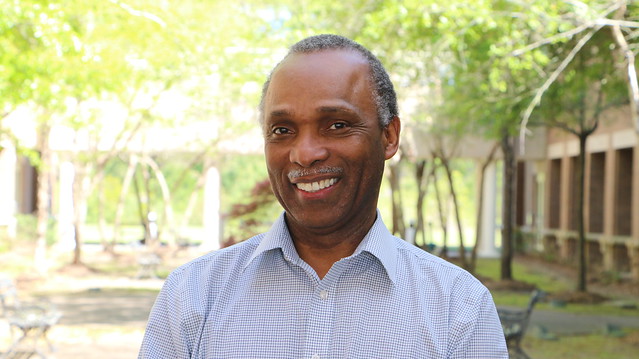
There was no denying it; the kid liked bugs. But who could have known then that he would preside over the world’s largest organization devoted to the science of entomology?
Growing up in rural New Bern, NC, young Alvin Simmons was interested in bugs, but that interest went beyond mere childhood entertainment, his was of budding scholarly curiosity. “Growing up on a farm, I was interested in many aspects of science surrounding me, including biology, behavior, and ecology of insects,” he said.
Simmons followed his passion through a bachelor’s degree in biology from East Carolina University, to master’s and doctoral degrees from the University of Kentucky. Simmons has been a research entomologist at the U.S. Vegetable Research Laboratory in Charleston, SC, since 1992. His career with USDA’s Agricultural Research Service (ARS) has led to – so far – 106 refereed journal articles, co-release of five breeding lines, and more than 300 technical reports that resulted in more than 200 pesticide labels.
In addition to having become a leading research entomologist, Simmons now heads the Entomological Society of America (ESA), the largest organization in the world serving the professional and scientific needs of entomologists and individuals in related disciplines. He’s also the first African-American to hold the post.
As president, Simmons is an ESA ambassador; he presides over executive meetings and appoints board representatives from scientific, professional, and other organizations. In addition, he has the important task of furthering the state of the science – something Simmons does not take lightly.
“The people and science that underpin entomology continue to expand,” he said. “New and diverse people and technology are essential. Training comes in a wide range of applied and basic sciences and mathematics, and individuals may work on a myriad of entomological subjects without necessarily having ‘entomologist’ as their job title.”
At ARS, Simmons is a key player in developing environmentally-friendly solutions against insect pests of vegetable crops. He also coordinates ARS support of a national public effort to register pesticides for specialty crops like fruits, vegetables, and nursery/floral plants.
Simmons cites some of his favorite accomplishments in the lab as the first DNA sequence of a whitefly, climate change impact on an insect, writing a book chapter on tomato pests, and helping determine the source of pest resistance in the wild watermelon.
Simmons said he is enjoying his time as ESA president, but has plans after his term expires. In addition to expanding his USDA work, Simmons said he is looking toward possible advisory service for the international entomological community and conducting more outreach on entomology. Who knows, maybe he can encourage other kids who like bugs into careers in science.



